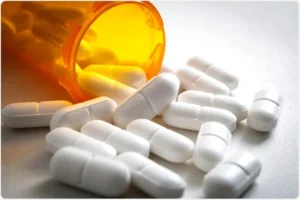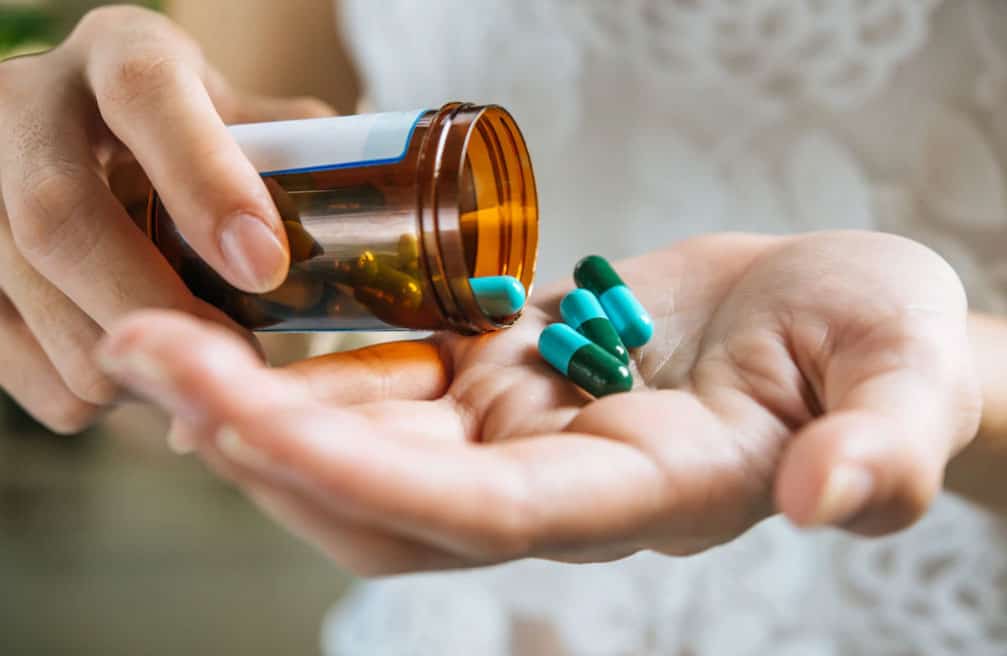Opioid Use Disorder (OUD) is a complex medical condition characterized by the compulsive use of opioids despite adverse consequences. It affects millions worldwide, leading to significant health, social, and economic problems. Recognizing the gravity of this crisis, numerous therapeutic strategies have been developed to help individuals recover. This blog post will explore effective therapy for opioid use disorder, and also discuss the benefits of it.
Contents
What Is An Example Of Opioid Use Disorder?
 Opioid Use Disorder (OUD) occurs when someone becomes dependent on opioids and continues using them despite the negative consequences on their health, social life, and responsibilities. An example of OUD could involve a person who was initially prescribed opioids to manage pain after surgery. Over time, they might begin taking larger doses than prescribed or using the medication more frequently, feeling unable to stop despite wanting to do so.
Opioid Use Disorder (OUD) occurs when someone becomes dependent on opioids and continues using them despite the negative consequences on their health, social life, and responsibilities. An example of OUD could involve a person who was initially prescribed opioids to manage pain after surgery. Over time, they might begin taking larger doses than prescribed or using the medication more frequently, feeling unable to stop despite wanting to do so.
As their tolerance increases, they may seek opioids from multiple doctors, use them in unsafe ways (like crushing and snorting pills), or even turn to illegal opioids like heroin if prescriptions are no longer available.
This dependence can disrupt their personal and professional life, leading to strained relationships, neglect of responsibilities, financial problems, and severe health issues. The compulsive behavior to use, despite these adverse outcomes, signifies the core of opioid use disorder.
How Is Therapy For Opioid Use Disorder Work?
Therapy for opioid use disorder (OUD) often involves a combination of medication-assisted treatment (MAT), behavioral therapies, and supportive services. This integrated approach aims to treat the whole person, addressing not just the physical aspects of addiction but also the psychological and social factors.
Here’s how these therapies typically work:
Medication-Assisted Treatment (MAT)
MAT is one of the most critical components in the treatment of OUD. It involves the use of medications, combined with counseling and behavioral therapies, to provide a “whole-patient” approach. The medications used in MAT are approved by the FDA and are designed to normalize brain chemistry, block the euphoric effects of opioids, relieve physiological cravings, and normalize body functions without the negative effects of the abused drug.
Common medications include:
- Methadone: Reduces cravings and withdrawal symptoms without producing a high.
- Buprenorphine: Lowers or eliminates opioid cravings without producing significant euphoria or respiratory depression.
- Naltrexone: Blocks opioid receptors and prevents opioids from having an effect.
Behavioral Therapies
Behavioral therapies for OUD help patients engage in the treatment process, modify their attitudes and behaviors related to drug use, and increase healthy life skills. These therapies can also enhance the effectiveness of medications and help people remain in treatment longer. Some of the key behavioral therapies include:
- Cognitive Behavioral Therapy (CBT): Helps patients recognize and change maladaptive behaviors and thought patterns, develop coping strategies, and apply various skills to handle different life situations without resorting to opioids.
- Dialectical Behavior Therapy (DBT): Focuses on teaching patients skills to manage stress, regulate emotions, and improve relationships with others.
- Motivational Interviewing (MI): Increases an individual’s motivation to change and make positive decisions by resolving ambivalence.
Support Groups and Counseling
Support from peers and counselors offers essential social reinforcement and can be an important component in the matrix of care for individuals suffering from OUD. These types of Support groups like Narcotics Anonymous (NA) or specific group therapy sessions can provide peer support and shared experiences. Also, individual counseling can offer a more personalized approach to address the psychological aspects of addiction.
Holistic and Complementary Therapies
Some treatment programs incorporate holistic therapies like acupuncture, mindfulness, yoga, and meditation. These are used to help reduce stress, enhance emotional balance, and improve overall physical and mental wellness. It can be beneficial in recovery from OUD.
Relapse Prevention Education
Relapse prevention is a critical part of therapy. It involves education on how to recognize the triggers that lead to drug use, developing effective coping strategies to deal with these triggers, and maintaining abstinence over the long term.
Effective treatment plans are tailored to the individual needs of the patient, considering their specific situation, related health conditions, and personal preferences. This personalized approach increases the likelihood of successful recovery.
What Are The Benefits You Can Expect?
 Therapy for opioid use disorder offers numerous benefits that contribute to a person’s recovery and overall well-being. Here are some of the key benefits you can expect from engaging in a comprehensive treatment plan:
Therapy for opioid use disorder offers numerous benefits that contribute to a person’s recovery and overall well-being. Here are some of the key benefits you can expect from engaging in a comprehensive treatment plan:
1. Reduced Risk of Overdose
One of the most immediate benefits of therapy, especially medication-assisted treatment (MAT), is the reduced risk of overdose. Medications like methadone, buprenorphine, and naltrexone help to stabilize the body’s response to opioids, decreasing the likelihood of fatal and non-fatal overdoses.
2. Improved Mental Health
Behavioral therapies such as cognitive behavioral therapy (CBT) and dialectical behavior therapy (DBT) address underlying issues related to addiction, such as anxiety, depression, and other mental health disorders. This can lead to improved overall mental health and better coping strategies for dealing with stress and triggers.
3. Enhanced Social Functioning
Therapy can improve relationships with family and friends and increase social functioning. It provides tools and strategies to better manage interpersonal relationships and responsibilities, often strained by the impacts of addiction.
4. Increased Employment Opportunities
As individuals progress in their recovery, they often find it easier to obtain and maintain employment. Therapy can help improve cognitive functions and personal responsibility, making patients more likely to succeed in their job roles.
5. Better Legal Outcomes
Engaging in a treatment program can also lead to better legal outcomes. Many courts offer drug treatment programs as an alternative to incarceration, recognizing the benefits of rehabilitation over punishment.
6. Prevention of Health-Related Complications
Therapy reduces the health risks associated with chronic opioid use, such as infections, liver disease, and respiratory problems, by supporting a healthier lifestyle and reducing or eliminating opioid use.
7. Support System Development
Treatment programs often help build a robust support system through group therapy and peer support groups. This network can provide ongoing encouragement and understanding. This is crucial for long-term recovery.
These benefits illustrate why effective therapy for opioid use disorder is crucial for overcoming addiction. And, also for fostering a stable, healthy, and fulfilling life.
How To Self-Manage Opioid Use Disorder?
 Self-managing opioid use disorder (OUD) requires a comprehensive approach that integrates personal responsibility with professional support. While it’s crucial to seek guidance from healthcare providers, there are effective strategies that individuals can adopt to support their recovery journey.
Self-managing opioid use disorder (OUD) requires a comprehensive approach that integrates personal responsibility with professional support. While it’s crucial to seek guidance from healthcare providers, there are effective strategies that individuals can adopt to support their recovery journey.
Self-help tips
Here’s a guide on how to self-manage OUD:
Educate Yourself About OUD
Understanding the nature of opioid addiction, its effects on the brain and body, and the recovery process is foundational. Knowledge empowers you to make informed decisions about your treatment and helps you understand what to expect during recovery.
Develop a Support System
Building a strong network of support from family, friends, and peer support groups like Narcotics Anonymous can provide the encouragement and accountability necessary to maintain recovery. Engaging with others who have similar experiences can also provide motivation and reduce feelings of isolation.
Practice Healthy Living
Physical health significantly impacts recovery. Engaging in regular exercise, maintaining a nutritious diet, and ensuring adequate sleep can improve your physical and mental well-being. Avoiding other substances, like alcohol and non-prescription drugs, is also crucial.
Learn Stress Management Techniques
Stress is a common trigger for relapse. Learning and practicing stress management techniques such as mindfulness, meditation, yoga, or other relaxation methods can help manage stress without resorting to opioid use.
Develop New Hobbies and Interests
Finding new interests and hobbies can help fill the void left by addiction, providing a sense of purpose and joy. Activities like art, music, sports, or volunteering not only keep you engaged but also contribute to a healthier lifestyle.
Set Realistic Goals and Track Progress
Setting short and long-term goals helps maintain focus and motivation throughout recovery. Tracking your progress, celebrating your achievements, and adjusting goals as needed can reinforce your commitment to recovery.
Prepare for Triggers and Cravings
Identifying your triggers and having a plan in place to deal with cravings are essential. This might include calling a friend, attending a support group meeting, or practicing a relaxation technique.
Keep a Journal
Writing about your thoughts, feelings, and daily experiences can be a therapeutic tool for self-reflection and monitoring your progress. It can also help identify patterns or triggers in your behavior that need attention.
Consider Technology-Based Tools
Various apps and online platforms are designed to support addiction recovery. These can provide resources for tracking sobriety, managing stress, connecting with support groups, and accessing motivational content.
While self-management strategies are valuable, they are most effective when used in conjunction with professional medical treatment and counseling. Ongoing professional support is vital, especially for dealing with the complexities of addiction and ensuring the safe and effective use of medications in MAT.
Conclusion
In conclusion, overcoming opioid use disorder is a journey that involves a combination of professional medical help, personal commitment, and the support of loved ones. By integrating medication-assisted treatment, behavioral therapies, and self-management techniques, individuals can make significant strides toward recovery.
Remember, every step forward in this journey is a step towards a healthier, more fulfilling life, and while challenges may arise, the support and tools provided by comprehensive therapy can guide you to long-term success.
